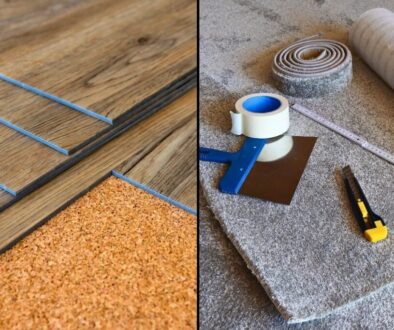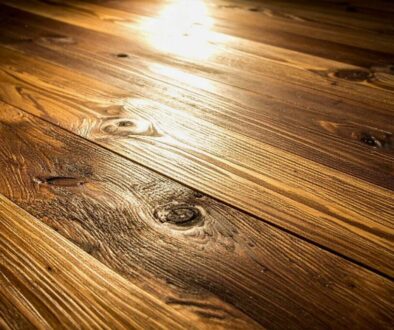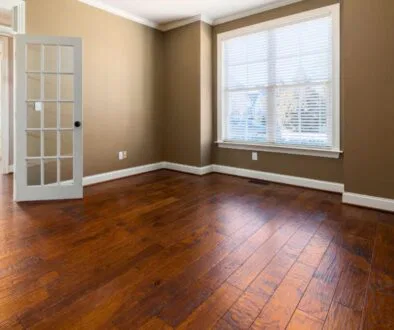Floor Leveling Cost Guide: Plan Your Renovation Budget
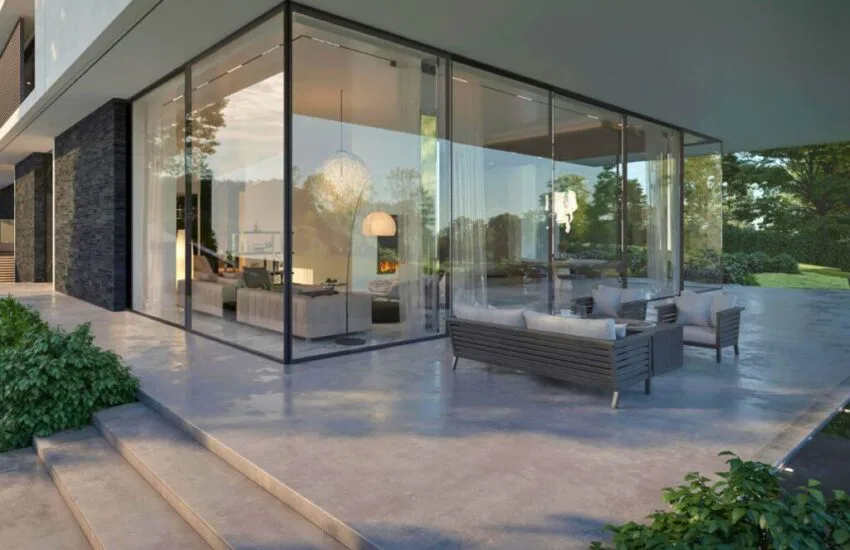
Published Sept. 11, 2025
Are uneven floors causing problems you might not expect? Beyond being an eyesore, they’re tripping hazards, can damage your home’s structure, and make renovations difficult. Whether it’s a sunken garage slab, a sloped basement, or other uneven floors, the problem worsens if ignored. So, what’s the floor leveling cost to fix this? The answer varies depending on method, materials, and repair complexity.
In this article, we’ll break down the key factors that influence floor leveling costs. We’ll cover methods, cost estimates for areas like garages and basements, and why square footage isn’t always reliable. By the end, you’ll know what to expect and how to budget for your floor leveling project.
Understanding Floor Leveling Cost: Key Factors At Play
To estimate your project’s cost, you need to know the key factors: the repair method, damage severity, and site conditions.
Methods For Leveling Concrete Floors And Their Costs
Professionals use different methods to level concrete floors. Each method suits specific needs and budgets.
Stone Slurry Grout Method
This method uses a mixture of crushed limestone, water, and Portland cement, pumped beneath the slab to fill voids and lift concrete. It’s an eco-friendly, precise, and efficient solution, balancing affordability with long-term durability. Cost-effective yet highly reliable, this approach typically ranges from $7 to $25 per square foot.
Foam (Polyjacking) Method
Polyjacking lifts and stabilizes concrete slabs. It uses high-density polyurethane foam. The process involves injecting the foam through small, precisely drilled holes. As the foam expands, it fills voids beneath the surface and raises the slab with minimum disruption.
This method is quick, clean, and requires smaller drill holes compared to other options. However, its higher material costs make it one of the pricier solutions, averaging $5 to $25 per square foot.
Mudjacking Method
Mudjacking is a classic, cost-effective solution for raising concrete slabs. This process involves injecting a “slurry” mixture of soil, sand, and cement beneath the slab to lift it back into place. While affordable, it does require larger drill holes, and the weight of the materials can sometimes cause the slab to settle again over time. The cost usually ranges from $3 to $6 per square foot.
Each method has its strengths and trade-offs, making it important to choose the one that best fits your specific project needs and budget.
Why Floor Leveling Costs Vary: More Than Just Square Footage
Many homeowners assume floor leveling costs are based only on square footage, but that’s just part of the equation. Several other factors play a bigger role in determining the final price.
- Depth of the Void and Amount of Lift Needed: A larger slab with only a minor lift can cost less than a small slab with a deep void. For example, a 20×20-foot slab needing a half-inch lift may be cheaper than a 5×5-foot slab requiring a six-inch fill.
- Site Accessibility: Easy access to equipment keeps costs lower. Tight spaces, obstacles, or tricky locations increase labor and time, adding to the expense.
- Crack Repairs: Slabs with visible cracks often need extra sealing before or after leveling, which raises the project cost.
- Material Choice: The method used—mudjacking, polyjacking, or stone slurry grout—affects both the upfront cost and the long-term durability of the repair.
By understanding these factors, homeowners can set more realistic expectations and better anticipate the true cost of floor leveling.
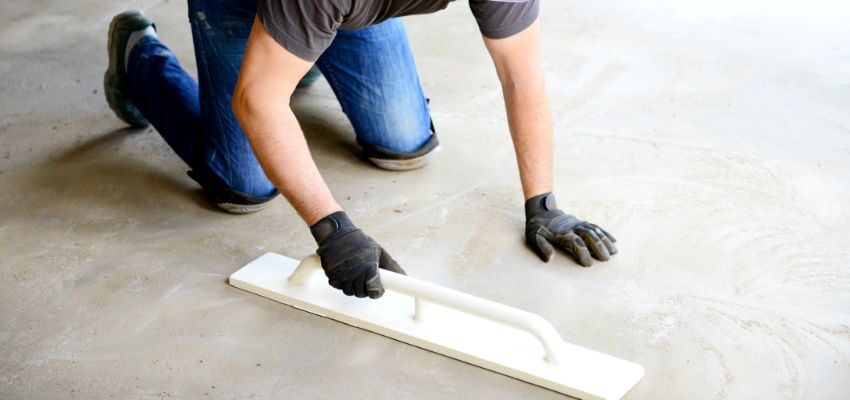
Minimum Costs And Factors Affecting Estimates
Professional concrete leveling companies typically charge a minimum fee for any project. This fixed cost, ranging from $300 to $2,000, accounts for mobilizing the crew, equipment, and materials necessary to complete the job. Even small repairs are generally priced within this minimum range.
Beyond the base charge, several factors influence the final cost estimate:
- Project size: The amount of material required to fill voids and lift the slab plays a significant role in determining the cost.
- Accessibility: Is the area easy to access for equipment, or does it require maneuvering through tight spaces?
- Materials used: The choice of foam, mudjacking slurry, or stone slurry grout affects the cost.
- Crack repairs: Additional work to seal cracks before or after leveling may increase costs.
Knowing these factors aids in setting realistic expectations and ensuring an accurate project estimate.
Cost Estimates By Location: What To Expect For Different Areas Of Your Home
The cost of fixing uneven floors depends on the area of your home. Here are general estimates for common trouble spots.
Garage Floor Leveling Cost
Garage floors are particularly prone to sinking or settling over time. The repair cost varies based on the number of affected slabs and the depth of the voids beneath them.
- Mudjacking: Costs range from $1,000 to $2,200 for a standard two-car garage.
- Polyjacking: Typically priced between $2,500 and $5,400.
Smaller repairs, like lifting one corner, cost less. Larger projects with deeper voids or multiple slabs cost more.
Concrete Floor Leveling Cost
Concrete floors include sidewalks, patios, porches, and interior slabs. Project complexity can vary. Sidewalks are simple, but interior floors require more precision and care.
- Mudjacking: Costs typically range from $3 to $6 per square foot.
- Polyjacking: Prices fall between $5 and $25 per square foot.
- Stone slurry grout: Expect costs of $7 to $25 per square foot.
Final costs depend on the material required and site conditions.
Basement Floor Leveling Cost
Basement floors come with challenges like limited access, high humidity, and the need for proper subfloor prep. In finished basements, flooring removal may also be necessary before repairs can commence.
- Mudjacking: Costs range between $2,400 and $4,800 for an 800-square-foot basement.
- Polyjacking: Typically costs between $5,000 and $12,000.
To ensure stability, address water issues before leveling the floor.
Cost Per Square Foot—What You Need to Know
Understanding the floor leveling cost per square foot is a helpful starting point for budgeting, but it doesn’t tell the whole story. Pricing depends on the amount of material required and the complexity of the project. Here’s a breakdown of common options:
- Mudjacking: $3–$6 per sq. ft. — A budget-friendly choice, but the heavy slurry can lead to future settling.
- Polyjacking: $5–$25 per sq. ft. — Uses lightweight foam with minimal disruption, though it comes with a higher upfront cost.
- Stone Slurry Grout: $7–$25 per sq. ft. — Durable and eco-friendly, offering similar pricing to polyjacking.
- Self-Leveling Compound: $1–$5 per sq. ft. — Ideal for smoothing interior surfaces but unsuitable for lifting heavy slabs.
Pro Tip: Always schedule a site inspection. Square footage isn’t the only factor. Void depth, soil conditions, and accessibility also affect costs.
Frequently Asked Questions
Is basement floor leveling more affordable?
Not always. Basement leveling usually costs more than garages or exterior slabs. Limited access and high humidity make it more challenging. Working around finished spaces also requires extra care.
What are the realistic minimum costs for a project?
Most companies charge between $300 and $2,000 for even small jobs, factoring in the cost of labor, equipment, and materials.
Why do mudjacking, polyjacking, and grout have such different prices?
Costs vary based on material, labor, and long-term performance. Polyurethane foam, though more expensive, offers a lightweight and durable solution. In contrast, mudjacking is a more affordable option but comes with added weight and a higher risk of resettling over time.
How can you get the most value from a floor leveling project?
Getting quality work at a fair price requires careful planning. Get at least three detailed estimates from trusted contractors. Prepare the site to cut labor costs. Choose a durable solution that fits your needs—not just the cheapest option.
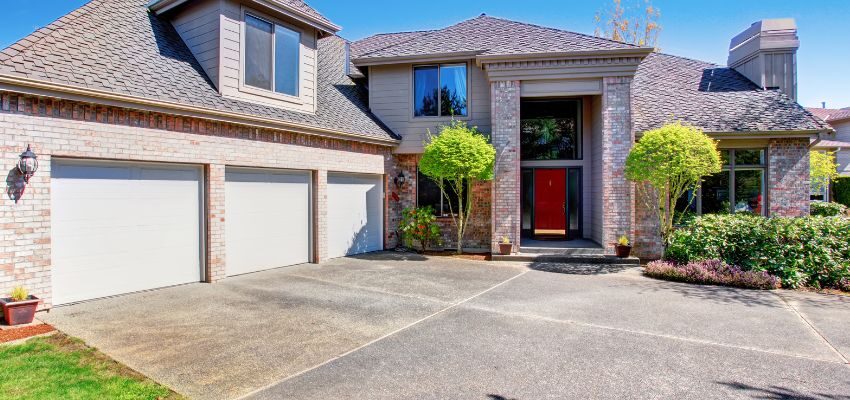
Investing Wisely: Getting The Best Value From Floor Leveling Costs
Leveling a floor adds safety and structural integrity. Floor leveling costs vary, with square footage just one factor. Get multiple estimates from trusted professionals who can accurately assess the issue. By understanding costs, you can make an informed decision for a safer, stronger, more beautiful home.
Ready to restore your home’s structure and style? Vintage & Specialty Wood offers unique, sustainable options for flooring, beams, and custom projects. Add warmth and authenticity to your renovation—visit Vintage & Specialty Wood now and start your transformation.
Hire The Timber Experts For Your Next Project
Vintage & Specialty Wood should be your source of the highest quality timbers from around the world. When it comes to fabricating and installing reclaimed wood or specialty wood products in your home, we don’t cut corners. We offer many reclaimed wood and specialty wood products such as Douglas Fir, white oak, and much more. We also offer timber framing and wood flooring services as well. Contact our team today to speak to a timber expert about what Vintage & Specialty Wood can do for you.

This Blog Is Fact Checked
This content has undergone meticulous fact-checking by our team of internal experts. Gain a deeper understanding of the high editorial standards we uphold on our website here.

About The Author
Experience, exploration, and knowledge are the hallmarks of writer Rei Bayucca. Her dedication to crafting articles that both inspire and educate will leave you thinking long after you’ve finished reading.

